Is your daily cup of coffee giving you the boost you need, or is it leaving you with jitters, a midday crash, or an upset stomach? For many coffee lovers, that first sip of morning brew isn’t just a wake-up call. It’s a daily ritual. But as more people prioritize wellness and sustainability, an alternative is gaining traction: mushroom coffee.
Touted as a healthier option, mushroom coffee is showing up on store shelves and Instagram feeds alike, with claims of providing calmer energy, improved digestion, and even immune support. But how does it really compare to your go-to cup of regular coffee?
In this article, we’ll break down the differences between mushroom coffee and regular coffee, from caffeine content and acidity to health benefits and how they affect your energy levels, so you can decide which brew is better for your body and lifestyle.
Caffeine Content: Gentle vs. Jittery
Caffeine is the reason many of us reach for coffee in the first place. A standard 8-ounce cup of regular coffee contains around 95 milligrams of caffeine, though this can vary based on brewing method, roast, and bean origin. Darker roasts generally have slightly less caffeine than lighter roasts by volume, but the difference isn’t huge.
That level of caffeine provides a quick, strong boost to mental alertness, which is why it’s popular before work, workouts, or meetings. However, for some people, especially those sensitive to stimulants, it can also come with unwanted side effects such as jitters, increased heart rate, or a mid-morning crash.
Mushroom coffee contains significantly less caffeine, typically in the range of 40 to 60 milligrams per serving. This is because most mushroom coffees are blends that combine regular coffee with powdered functional mushrooms. The goal is to retain the flavor and alertness of coffee but with a calmer, more sustained lift.
If you’ve been looking to cut back on caffeine without giving up your coffee habit entirely, mushroom coffee offers a balanced alternative. You still get a sense of focus and mental clarity, just without the nervous edge that sometimes follows a strong espresso or a large drip coffee.
-
Regular coffee = more caffeine, more intensity
-
Mushroom coffee = less caffeine, more balance
Acidity and Digestive Comfort

Coffee's natural acidity is part of what gives it its complex flavor, but it can also be a source of discomfort, especially for people with sensitive stomachs. Regular coffee has a pH around 4.85 to 5.10, making it relatively acidic. For some drinkers, this leads to issues like acid reflux, heartburn, or bloating, particularly when consumed on an empty stomach.
The acidity in coffee can also contribute to the erosion of tooth enamel over time and may irritate those with gastrointestinal conditions such as ulcers or gastritis. According to a study published in 2018, acidic beverages like coffee can exacerbate symptoms of acid reflux and other digestive discomforts in sensitive individuals.
Mushroom coffee tends to be lower in acidity. This is because the added mushrooms, which are naturally more alkaline, help balance the brew’s pH. Mushroom coffee blends are even marketed as low-acid or gentle on your gut.
So if you’ve had to cut back on regular coffee due to stomach sensitivity but still miss the ritual, mushroom coffee could be worth a try. It’s easier on digestion without sacrificing the taste experience entirely.
Health Benefits: Antioxidants vs. Adaptogens
Both regular and mushroom coffee have something valuable to offer when it comes to health, but the way they benefit your body differs.
Regular coffee is rich in antioxidants, especially chlorogenic acids. These compounds help neutralize free radicals and reduce inflammation, which can support heart health and lower the risk of chronic conditions. Research has linked moderate coffee consumption to reduced risk of diseases like:
-
Type 2 diabetes
-
Alzheimer’s and Parkinson’s disease
-
Stroke and certain types of cancer
Regular coffee can also improve mental performance, mood, and metabolism when consumed in moderate amounts.
Mushroom coffee, on the other hand, introduces the benefits of adaptogens, a natural compound that helps the body manage stress and restore balance. While individual mushrooms may offer unique effects, adaptogens generally work by supporting the endocrine and immune systems, helping to regulate cortisol and fight fatigue.
For people navigating high-stress environments or burnout, this can be especially helpful. Instead of spiking your energy, mushroom coffee supports steady focus, mood balance, and resilience.
Of course, results vary depending on your body, lifestyle, and overall diet. But if you find regular coffee makes you feel anxious or depleted, the gentler effects of mushroom coffee might be a better fit.
Energy and Mental Performance

If you’ve ever needed a quick boost to get through a meeting or a tough workout, you know how powerful caffeine can be. Regular coffee gives you a fast burst of energy that wakes you up and helps you focus. It works by blocking a chemical in your brain that makes you feel sleepy, so you feel more alert and ready to take on the day. Plus, it helps release feel-good chemicals that can lift your mood and sharpen your reactions.
But that surge doesn’t always last. For some people, especially those with high sensitivity, regular coffee can lead to:
-
A midday crash
-
Difficulty concentrating after a few hours
-
Sleep disturbances if consumed too late in the day
Mushroom coffee offers a different experience. Because it contains less caffeine and includes compounds that support calm energy, the result is often described as “focused but relaxed.” Instead of a spike and a crash, you may feel steady mental clarity for several hours, without the overstimulation or irritability.
This makes mushroom coffee ideal for tasks that require sustained attention without hyperactivity, like studying, writing, or working from home.
Sourcing and Sustainability: What’s in Your Cup?
Whether you choose mushroom or regular coffee, what matters just as much as what’s not in your cup. Many conventional coffee brands rely on large-scale farming methods that use synthetic pesticides, chemical fertilizers, and unsustainable practices. This not only affects the environment but can also result in residue in your brewed cup.
Low-quality beans, especially those poorly stored, may also contain mold or mycotoxins, which are harmful compounds that can trigger inflammation, brain fog, and even digestive problems.
Mushroom coffee brands tend to position themselves as part of the clean-label movement. Many use:
-
Certified organic ingredients
-
Third-party testing for toxins and heavy metals
-
Compostable or recyclable packaging
That said, the same clean practices can and should apply to regular coffee. Choosing organic, toxin-tested beans from reputable sources ensures you're not only supporting your health, but also the farmers and ecosystems behind your brew.
Artizan Coffee are leading the way with toxin-free, USDA Organic certified coffee that’s sustainably sourced and packaged in compostable pods or bags.
Whether you choose traditional or mushroom-based blends, always look for:
-
USDA Organic or equivalent certifications
-
Transparent sourcing and lab testing
-
Eco-friendly packaging (like compostable pods or bags)
Who Should Choose Which?
Ultimately, the best choice comes down to your individual goals, lifestyle, and how your body reacts to caffeine and acidity.
You might prefer regular coffee if:
-
You enjoy bold flavor and stronger caffeine
-
You don’t experience stomach discomfort or energy crashes
-
You’re looking for general health benefits and mental stimulation
You might want to try mushroom coffee if:
-
You’re sensitive to caffeine
-
You want less acidity and a gentler option for your digestion
-
You’re interested in stress support, calm focus, or immune balance
Some people even rotate between both depending on the day, starting the week with regular coffee and switching to mushroom blends when they need calmer focus or better gut support.
Choose a Brew That Works for You
Whether you're curious about lower-acid blends or just want clean, organic coffee you can trust, Artizan Coffee has you covered. Our beans are grown without synthetic chemicals, tested for purity, and available in ground form, home-compostable ESE pods, and Nespresso®-compatible capsules, so you can brew the way you like, without compromising your health or the planet.




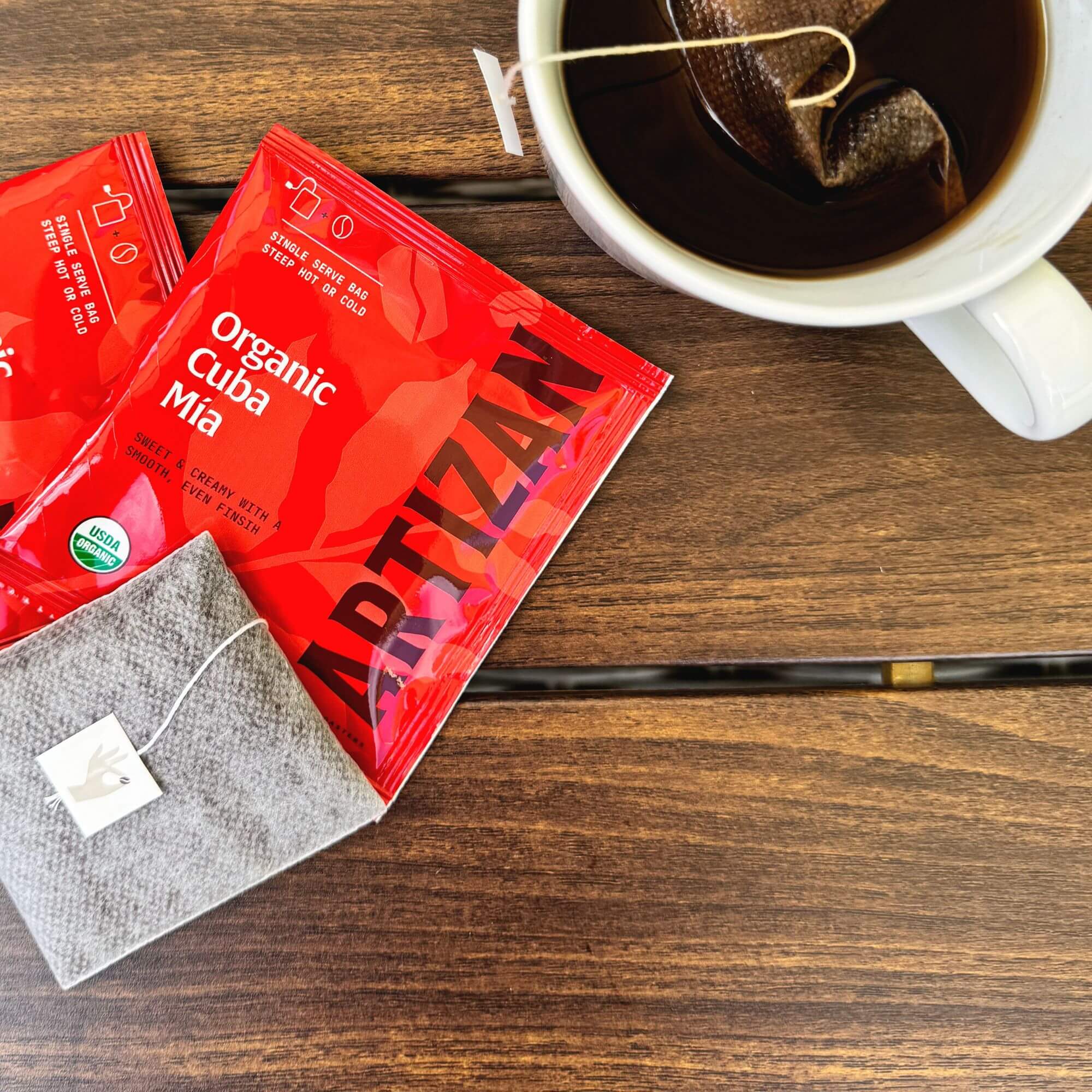

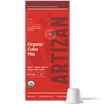

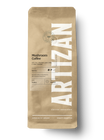
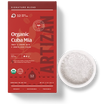

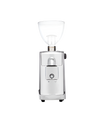
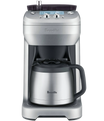

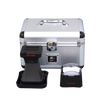
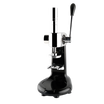






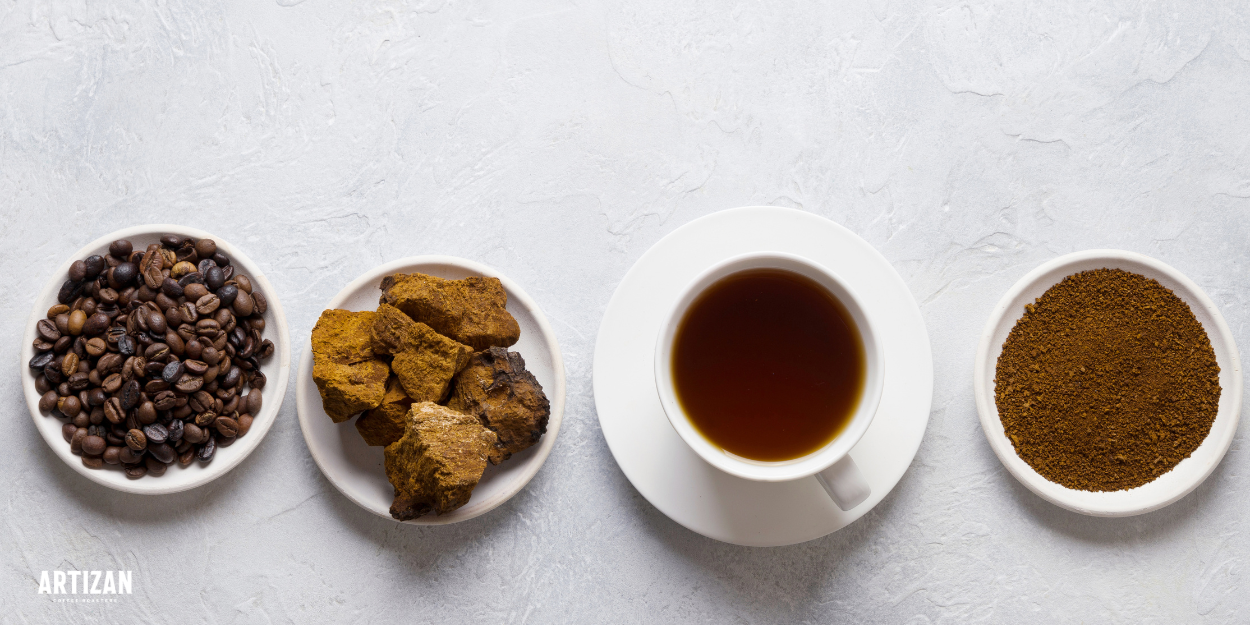


1 comment
Noomf Mushroom Coffee
Undoubtedly mushroom coffee is much better over regular coffee until unless the person is healthy without any medical issues and allergic history. Mostly people will choose the regular coffee when it comes to taste which can be easily overcome by choosing the right brands
Leave a comment
All comments are moderated before being published.
This site is protected by hCaptcha and the hCaptcha Privacy Policy and Terms of Service apply.